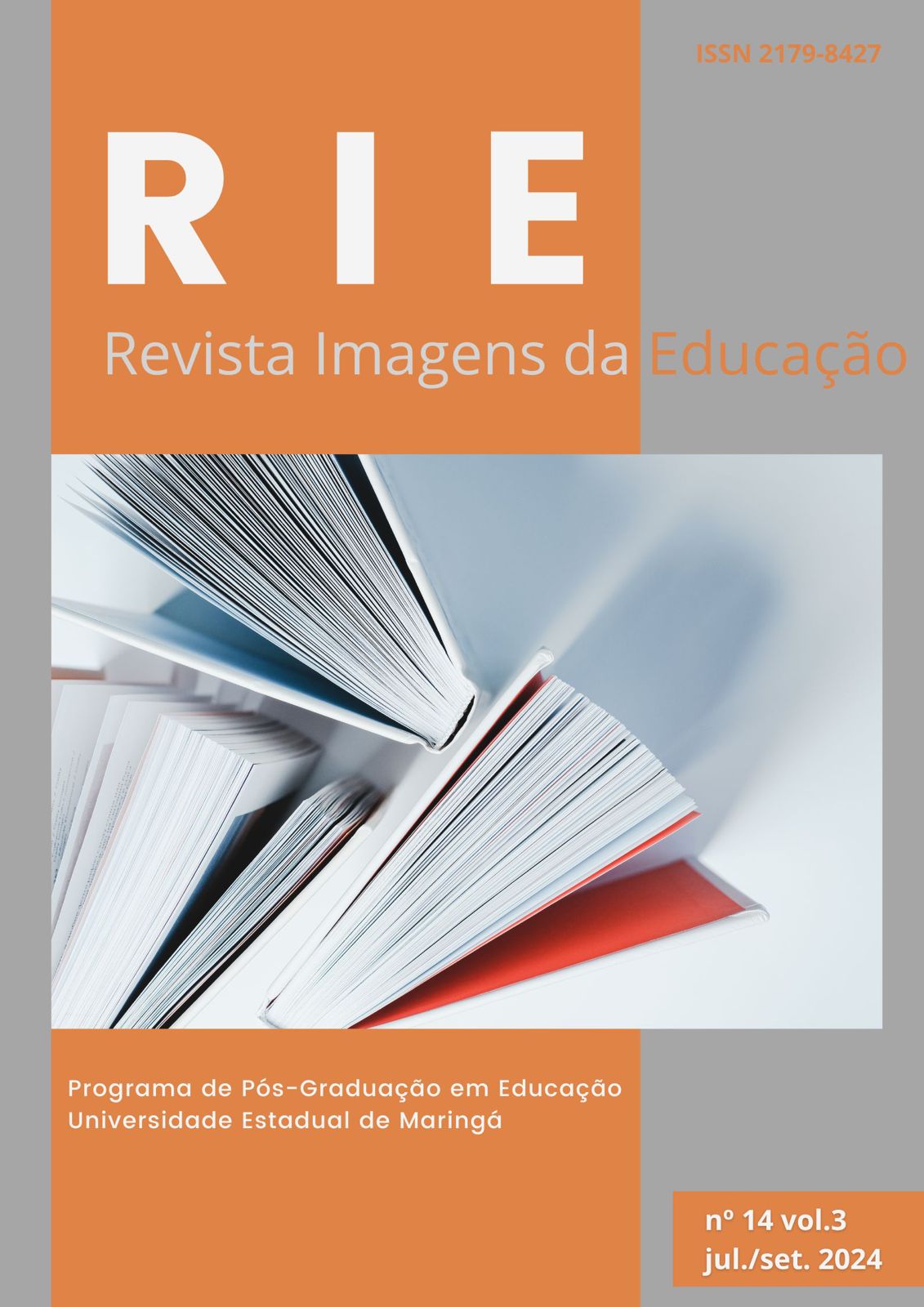TEACHING ABOUT GROUNDWATER THROUGH EXPERIENCES IN “AQUIFER WORKSHOP” AT PIBID-GEOGRAFIA
Abstract
Educational practices are tools that enable the teaching-learning process of students. However, the discussion about educational practices today is largely due to the scenario experienced with physical distancing and the suspension of in-person classes due to the Covid-19 pandemic. This scenario created by the pandemic required education networks and education professionals to redefine their duties to better serve students. This study aims to address the topic “groundwater” in an 8th year elementary school class, considering that these students at the time of the pandemic were attending the 6th year of elementary school, in which the content is covered. Groundwater is characterized by being all the water that infiltrates underground and occurs under the surface of the earth. Through these waters, aquifers can be formed, which are characterized as a large water reservoir. In view of this, it is emphasized that this theme is extremely relevant within the teaching of Geography in the area of hydrogeography. Therefore, the approach to this topic in the PIBID Program occurred through the construction and implementation of a workshop. It is worth noting that the application took place in person with all security measures. Furthermore, the article seeks to present the educational practices that were developed during the Covid-19 pandemic period in the Institutional Teaching Initiation Scholarship Program (PIBID), in order to be able to share the challenges that were experienced. The basic school students, by actively participating in the workshop, had a practical experience that facilitated their understanding of the process of water infiltration into the soil. This interactive approach tends to increase student interest and involvement, promoting more effective and lasting learning about the water cycle and hydrological processes.
Downloads
References
Batista, M. O. (2017). O abastecimento de água na cidade de Vieirópolis: a importância dos aquíferos fissurais. (Trabalho de Conclusão de Curso) Centro de formação de professores. Curso de Licenciatura em Geografia. Universidade Federal de Campina Grande.
Bocacio, C. B. & Severo, R. C. B. S. (2021). Políticas públicas educacionais para a formação de professores no Brasil: contribuições do PIBID em tempos de pandemia. 1ªed.Guaruja: Editora Cientifica.
Manzione, R. L. (2015). Águas subterrâneas conceitos e aplicações sob uma visão multidisciplinar. Jundiaí: Paco Editorial.
Oliveira, L. A & Nascimento, A. G. (2019). A importância do estágio supervisionado na formação dos acadêmicos do curso de licenciatura em química do IFMA Campus Zé Doca. Braz. J. of Develop., Curitiba, v. 5, n. 4.
Pandim, A. R. (2006). Oficina pedagógica de Cartografia: Uma proposta metodológica para o Ensino de Geografia. Trabalho de Conclusão de Curso. Curso de Graduação em Geografia – Universidade Estadual de Londrina.
Ribeiro, W. C. (2008). Aqüífero Guarani: gestão compartilhada e soberania. Estudos Avançados, v. 22, n. 64.
Scalabri, I. C. & Molinari, A. M. C. (2013). Importância da prática do estágio supervisionado nas licenciaturas. Revistaunar, v. 7, n.1, p. 1-12.
Souza, E. P. (2020). Educação em tempos de pandemia: desafios e possibilidades. Caderno de Ciências Sociais e aplicadas, 2020.
Souza, S. E. (2007). O uso de recursos didáticos no ensino escolar. Anais do I Encontro de Pesquisa em Educação, IV Jornada de Prática de Ensino, XIII Semana de Pedagogia da UEM: “Infância e Práticas Educativas”. Arq Mudi.
Copyright (c) 2024 Imagens da Educação

This work is licensed under a Creative Commons Attribution-NonCommercial-NoDerivatives 4.0 International License.
DECLARATION OF ORIGINALITY AND CESSATION OF COPYRIGHT
I Declare that current article is original and has not been submitted for publication, in part or in whole, to any other national or international journal. I also declare that once published in the Imagens da Educação, a publication of the IES (UEM, UEL, UFSM, Univali, Unioeste and UEPG), it will not be submitted by me or by any co-author to any other journal. In my name and in the name of co-authors, I shall cede the copyright of the above mentioned article to the Universidade Estadual de Maringá and I declare that I know that the non-observance of this norm may make me liable for the penalties contemplated in the Law for the Protection of Authors' Rights (Act 9609 of the 19th February 1998).















1.png)

